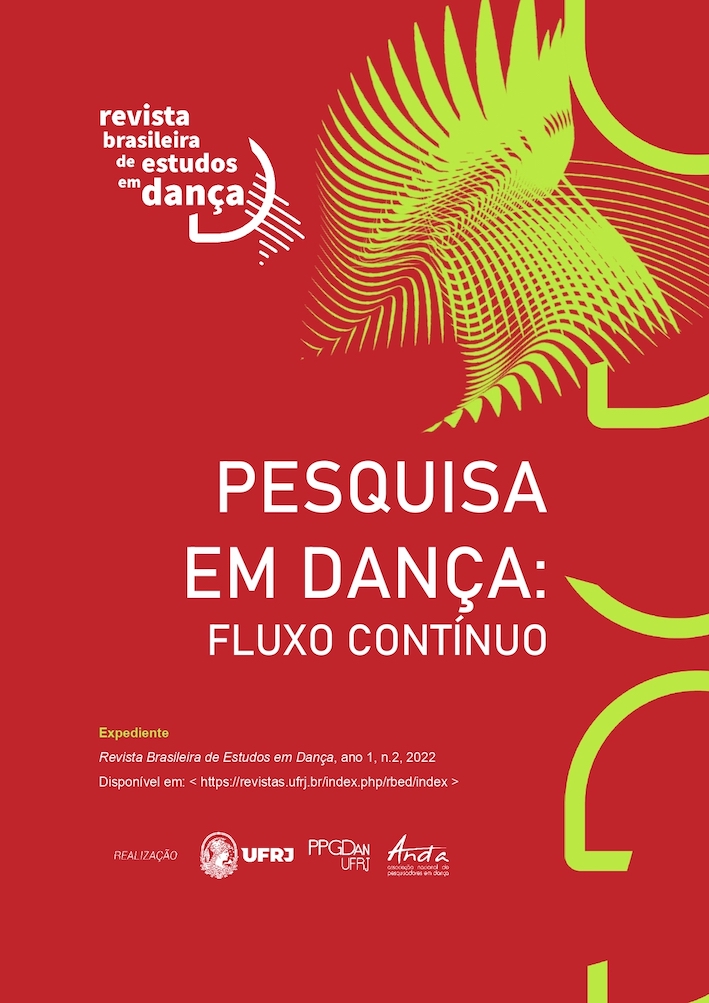Aquilomba FiloMove:
The process of re(creation) of tradition in the trajectory of Maestra Maria de Tie and the Quilombola de Souza Community
DOI:
https://doi.org/10.58786/rbed.2022.v2.n2.55282Keywords:
Dança, Estudos Afrolatinoamericanos, Quilombo, Filosofias do corpo, Pesquisa audiovisual.Abstract
In this research clipping, we present aspects of the audio-visual research Aquilomba Filomove carried out as collaborative action research by the Research Group Filomove: Philosophy, Arts and Latin América Aesthetics in2018, together with Maria de Tie and the Comunidade Quilombola de Souza, in Chapada of Araripe, Municipality of Porteiras in the south of Ceará, Brazil. The coconut as an intertwined dance, tambourine touch and singing show the body techniques, rhythmic cells and compositional strategies that were part of the reconstruction process of Afro-descendant manifestations, producing spaces of identification for the group. We guide action research towards the critical-reflective rescue of Latin American African American material and immaterial cultural heritage
Published
Versions
- 2023-11-30 (2)
- 2022-12-30 (1)
How to Cite
Issue
Section
License
Authors who publish in the Revista Brasileira de Estudos em Dança are
responsible for the content of signed articles and retain copyright.
They grant the journal the right of first publication with the work simultaneously
licensed under the Creative Commons Attribution-NonCommercial 4.0 License
(Open Archives Initiative - OAI). This feature, used for open-access journals,
allows sharing work for non-commercial purposes and acknowledges
authorship. If the text is later published in another vehicle, the author
must inform that it was initially published as an article in the Revista Brasileira
de Estudos em Dança. Therefore, even if the journal owns the first publication,
authors are entitled to publish their work in institutional repositories or on
their personal pages, even if the editorial process has not been completed.
The journal reserves the right to make normative, orthographic, and grammatical changes to maintain the language standard, respecting the authorial style.

